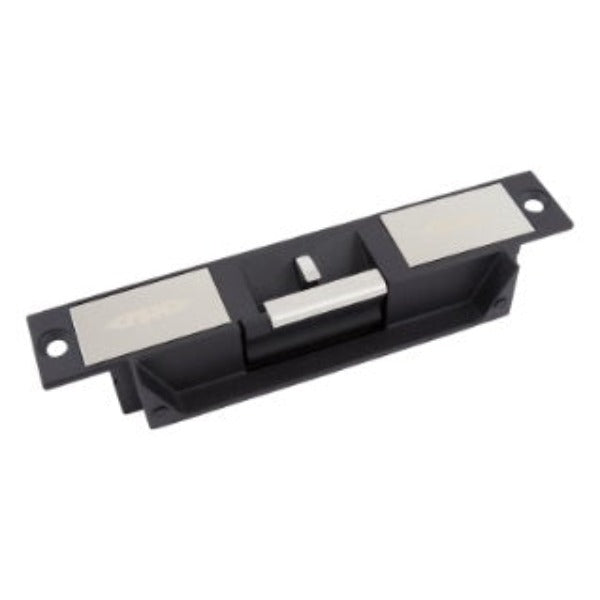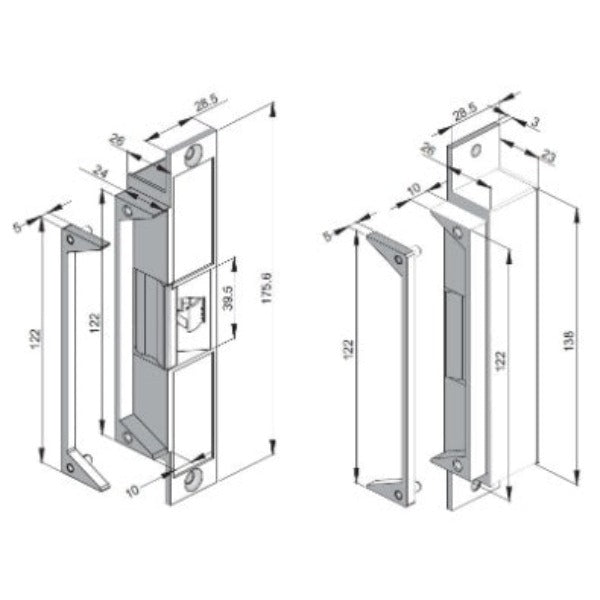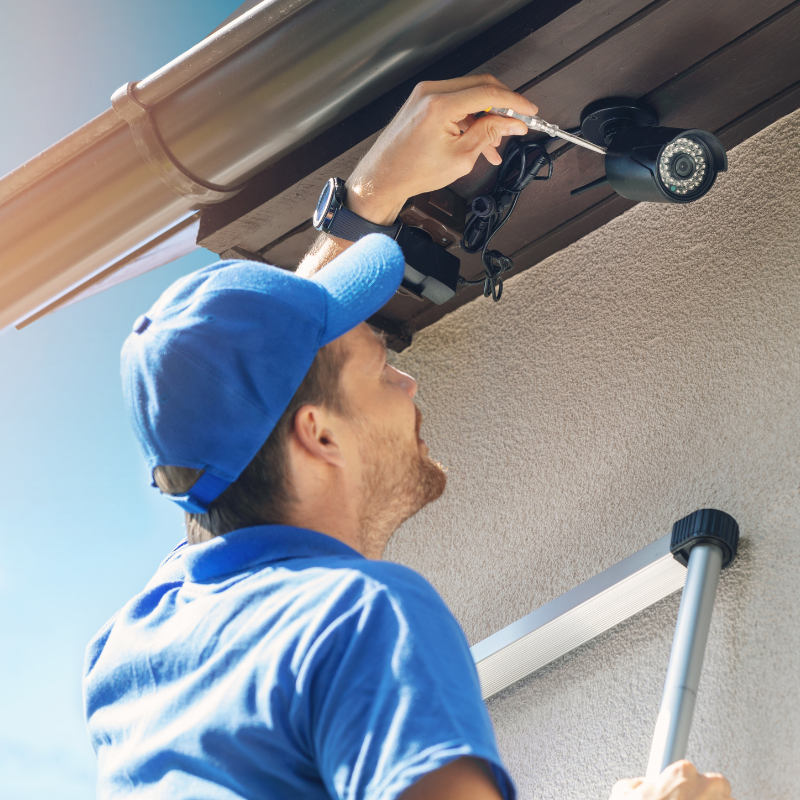Description
FSH ES20 Strike, 1490kg, Aus. FP, Non Monitored
The patented FES20, SCEC approved, high security electric door strikes are designed to provide Power To Lock (PTL) or Power To Release (PTR) changeover by simply rotating the "capstan" locking mechanism without tampering with the internal locking operations. The FES20 is pre-drilled for extension lips.
he FES20 Series Strikes are pre-drilled for extension lips and the 20m model is provided with full monitoring including true patented “anti-tamper.” independently tested, the FES20 Series electric strikes are the strongest of their category.
FES20 Series Strikes now come with a 10mm strike lip as standard, to prevent possible personal injury and damage to clothing as with 15mm lips. the FES20m Strike is ScEc approved for secure areas. the FES20m, FES20m-r + FES20m-m+FES20m-l2 are all ScEc approved for secure areas.
Features:
- Simple Power To Lock/Power To Release interchange
- No loose pins and springs
- Pre-drilled for extension lips
- Mounting kit included
- 4 Hours Fire rated
Downloads
Warranty
The 5 year mechanical warranty and 5 year electronic warranty covers the products listed below. FES20 Series
Specifications:
- 176 x 44.5 x 26.5mm
- 12V DC 220mA, 24V DC 120mA, 36V DC 80mA
- Up to 1490Kg holding force
Choosing an electronic door locks
The electronic door strike is installed within the door and activated by an intercom or access control system.
All strikes work on the principle of electronically controlling the temporary free movement of the jaw (striker) allowing for door opening without manual retraction of the latchbolt.
Ideally, the latch should have a dead-locking facility whereby the latch bolt cannot be forced back into its case because of the action of the snib resting against the electric strike forend. This facility offers extra protection when a strike is fitted to an outward opening door.
WHICH DOOR STRIKE SHOULD BE USED?
This depends on a number of factors. What level of security is needed? What type of door material is the strike to be fitted to? Single or double door? Is monitoring of the strike required? What power supply unit is to be used in the system? Is the system AC or DC? What else is running off the PSU?
LEVEL OF SECURITY
There are three basic categories.
- Light: normally with no quoted holding force or life. Usually AC and used for low cost door entry systems.
- Medium: Holding force of at least 1,000lb with guarantees of two or three years.
- High: Holding force of at least 3,000lb with guarantees of up to five years. Some are available with UL approval.
TYPE OF DOOR
Door material - internal or external, single or double doors.
Electric strikes can only be used on single action inward OR outward opening doors. For double action swing-through doors other locking solutions like solenoid bolts, magnetic shear locks or double action electric latches are available. Nowadays there are strikes suitable for nearly all door styles and materials, the most popular being timber and aluminum followed by steel, and occasionally, uPVC.
Potentially, uPVC causes the most problems because of the narrow and often complicated section containing steel reinforcing. Another problem is the fitting of a suitable lock case into the narrow uPVC framing to operate with the strike. If the door contains a multi-point lock it is likely to be impossible to fit an electric strike.
If the door contains, or can be fitted with a latch, the best option could be to fit a narrow style sash lock and operate with a sash lock strike either in a UK or DIN faceplate format.
Whilst a sash lock can improve the level of security in any door when the deadlock is thrown, care should be taken to ensure that the bolt is removed prior to attempting the operation of the strike.
MONITORING
Depending on model, most manufacturers produce strikes with or without a monitoring facility. This function relays back the state of the strike via single point monitoring of the latch in the jaw of the strike or by dual monitoring of both the latch and solenoid operation. For door state monitoring, consideration should be given to using a separate reed switch on the door/frame.
POWER TO LOCK/POWER TO OPEN
Fail Open (Power to Lock) or Fail Secure (Power to Open) are features of the electric strike that will be site dependent. For example, if the strikes are tied into the fire alarm system it is likely that they will be required to Fail Open (Fail Unlocked) once power to the strike is removed. Under other circumstances the strike may be required to fail in the locked position requiring the use of a Fail Secure (Power to Open) strike.
AC OR DC?
Where security is involved you cannot always expect a low cost AC strike to offer the same level of security that can be achieved by using a more expensive medium/high duty strike. Pick a product that is fit for the purpose. Short-term savings can work out very expensive. Most of the low cost door entry systems operate on AC rather than DC. Alternating Current produces the familiar buzzing sound which is not heard with DC systems, and AC strikes are only available as Fail Secure (Power to Open). More sophisticated systems operate on DC allowing for continuous silent Fail Open (Power to Lock) or Fail Secure (Power to Open) operation.
Shop CTC Security for best deals on electronic door locks.
Payment & Security
Your payment information is processed securely. We do not store credit card details nor have access to your credit card information.
Standard Shipping is a $17.50 flat rate for all orders
Express Shipping $40.00
Delivery Policy
All prices displayed on this website exclude shipping costs
Despatch Time
Orders are dispatched Monday – Friday from 8am – 5pm within 2-4 business days and shipping times are estimated at between 3-7 business days depending on your location within Australia.
Transit Times
Postal transit times may can vary depending upon your destination and other social aspects, including impacts from COVID-19, Some items are taking a little longer than usual right now due to high parcel volumes and ongoing COVID-19 restrictions.
P.O Boxes
We cannot ship to PO Boxes.
Order Confirmation
After placing an order, you will receive an order confirmation by e-mail. This means we’ve received your order in our system and have pre-authorised your credit card for the purchase. If your item is back-ordered or otherwise unavailable, we will void the pre-authorisation charge and contact you to inform you by e-mail. If your item(s) are available for immediate shipment (within 2 days), we will process the charges and submit the order for shipment.
Tracking Numbers will be sent to your email once your order has shipped.
In some cases, we may need to contact you before your order can be shipped. To ensure there is no delay, please respond to any email/phone call from our Customer Service team.
We proudly use the following Shipping Methods
Australia Post & Couriers Please.





